Reviews
Politist, adj.
Corneliu Porumboiu
Romania, 2009
Credits
Review by Cullen Gallagher
Posted on 01 October 2009
Source 35mm print
Categories The 47th New York Film Festival
One of the great ironies of the detective-centered plot is that, more often than not, it is the observer who is being observed. And not just by other characters in the narrative, but primarily by us, whether we are watching a movie or television show, or reading a pulp yarn. From the Continental Op to Veronica Mars, it has been the detectives themselves more than their cases that have commanded our attention. It is this attraction that is under scrutiny in Corneliu Porumboiu’s Police, Adjective, a movie that bends, as much as it obeys, the genre’s conventions.
One of the defining characteristics of the detective figure, whether private (shamus) or public (cop), is his or her marginalization. They are forever an outsider looking in, providing them with the necessary critical distance to give their observations weight: as much as they detect, they are also social commentators, reflecting on class, economics, justice, and particularly morals. Cristi, the central protagonist in Police, Adjective, fits this mold to a T. He spends his days endlessly following a trio of high schoolers who smoke hashish in hopes of finding the source of their drugs. When he turns up nothing, his superior orders him to arrest one of the boys. Cristi initially refuses to do so on the grounds that he thinks the law concerning hashish will soon change, and he doesn’t want the boy’s incarceration on his conscience. His superior reminds him that the law is the law, regardless of whether or not it may change, and that he either makes the arrest or turns in his badge. Forever the detective’s burden will be this conflict between state and moral law.
While debating semantics with his boss, Cristi reads aloud the following definition for the policier genre: “to some degree mysterious … [and] resolved at the end by the ingenuity of the police officer.” With that, Porumboiu has set up the film’s major antagonist. Withholding key narrative information (particularly the background on the case and suspects), and offering few plot developments beyond the basic set-up, Porumboiu pushes the limits of what can be considered “mysterious.” Nor is Cristi’s “ingenuity” much to speak of: the most detection we see him perform is walking a block behind his suspect or watching from across the street as they smoke. The film’s final punchline - and most effective subversion - is the fast and simple narrative resolution. That is, if you consider the narrative in terms of Cristi’s moral struggle between his convictions and his job’s responsibilities. Otherwise, Porumboiu doesn’t give you much to walk away with.
All this brings to mind another recent foray into the existentialism of mystery, Jim Jarmusch’s The Limits of Control, which goes much farther than Police, Adjective in terms of the stripping away of plot and character development, eventually settling into a mantra-like groove (tedious at times, hypnotic at others) of gestures and dialogue. Isaach De Bankolé’s unnamed hitman and Dragos Bucur’s Cristi, however, couldn’t be more different: for the former, silence symbolizes discipline, for the latter confusion. Though Jarmusch’s intentions still confound me, both filmmakers seem to be using the seeming constraints of genre as a means of transcendence. In the case of Police, Adjective, I am reminded of a question Cristi asks his wife, in reference to a song that she loves and he hates: “What would toothpaste be without a toothbrush?” So, what is a mystery film without a mystery? Or, turned around, what is a mystery without a mystery film to tell it? In both cases, the answer is the same: while it is possible to have one without the other, sometimes they just go better together. And as much as I enjoyed the rhetorical discussions about the ambiguity of language, Police, Adjective is at its best when the two are working hand in hand.
More The 47th New York Film Festival
-
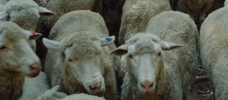
Sweetgrass
2009 -
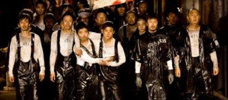
Kanikosen
2009 -

Police, Adjective
2009 -
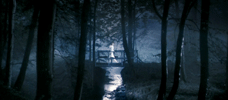
Antichrist
2009 -
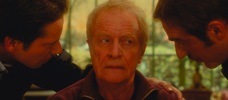
Wild Grass
2009 -
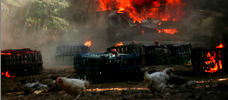
Lebanon
2009 -
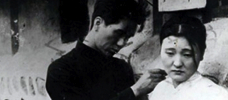
Crossroads of Youth
1934 -
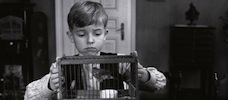
The White Ribbon
2009 -

Mother
2009 -

Min Ye
2009 -
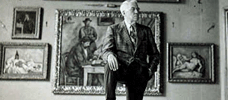
The Art of the Steal
2009 -
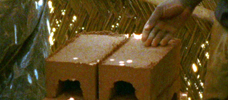
In Comparison
2009
We don’t do comments anymore, but you may contact us here or find us on Twitter or Facebook.



